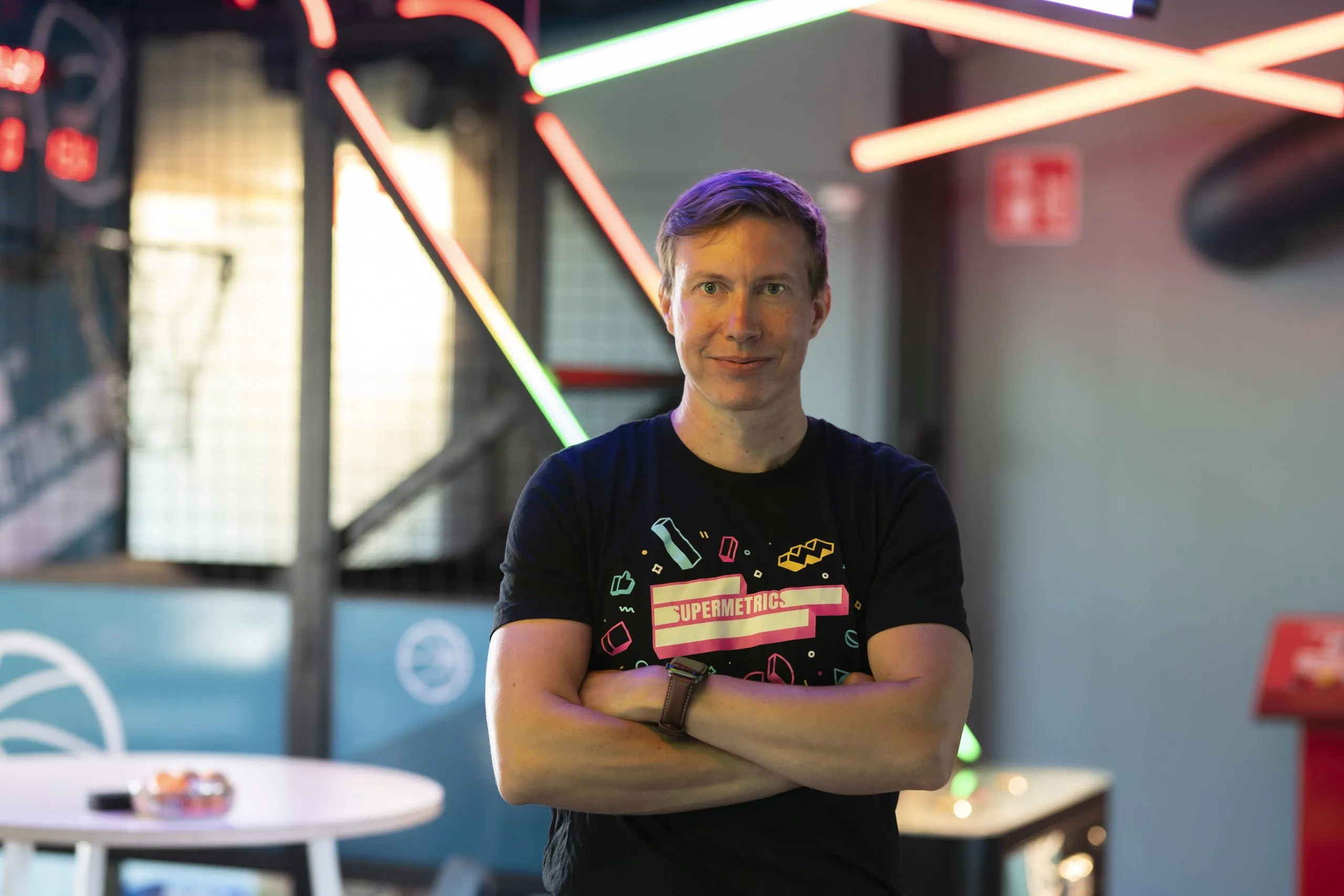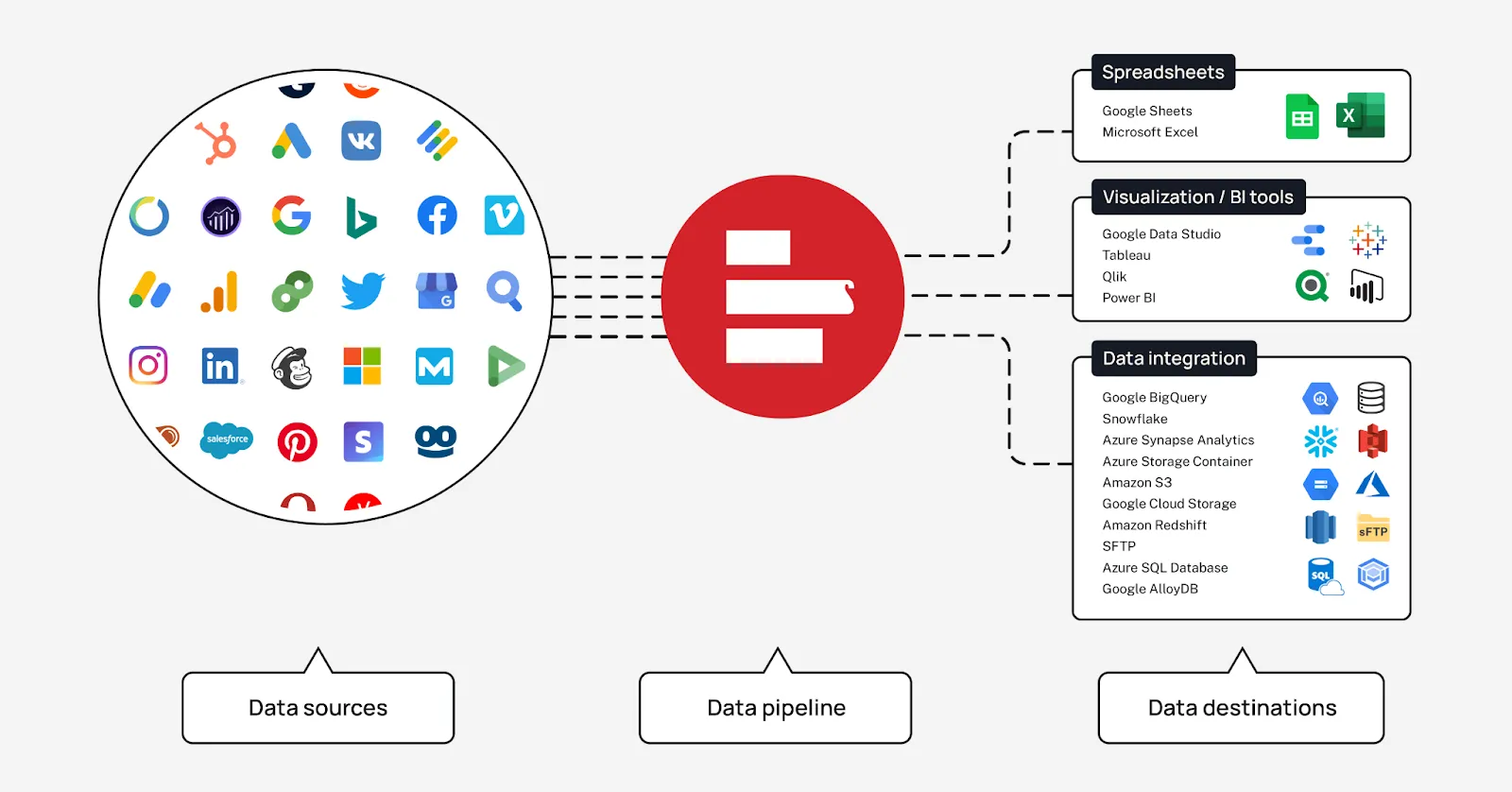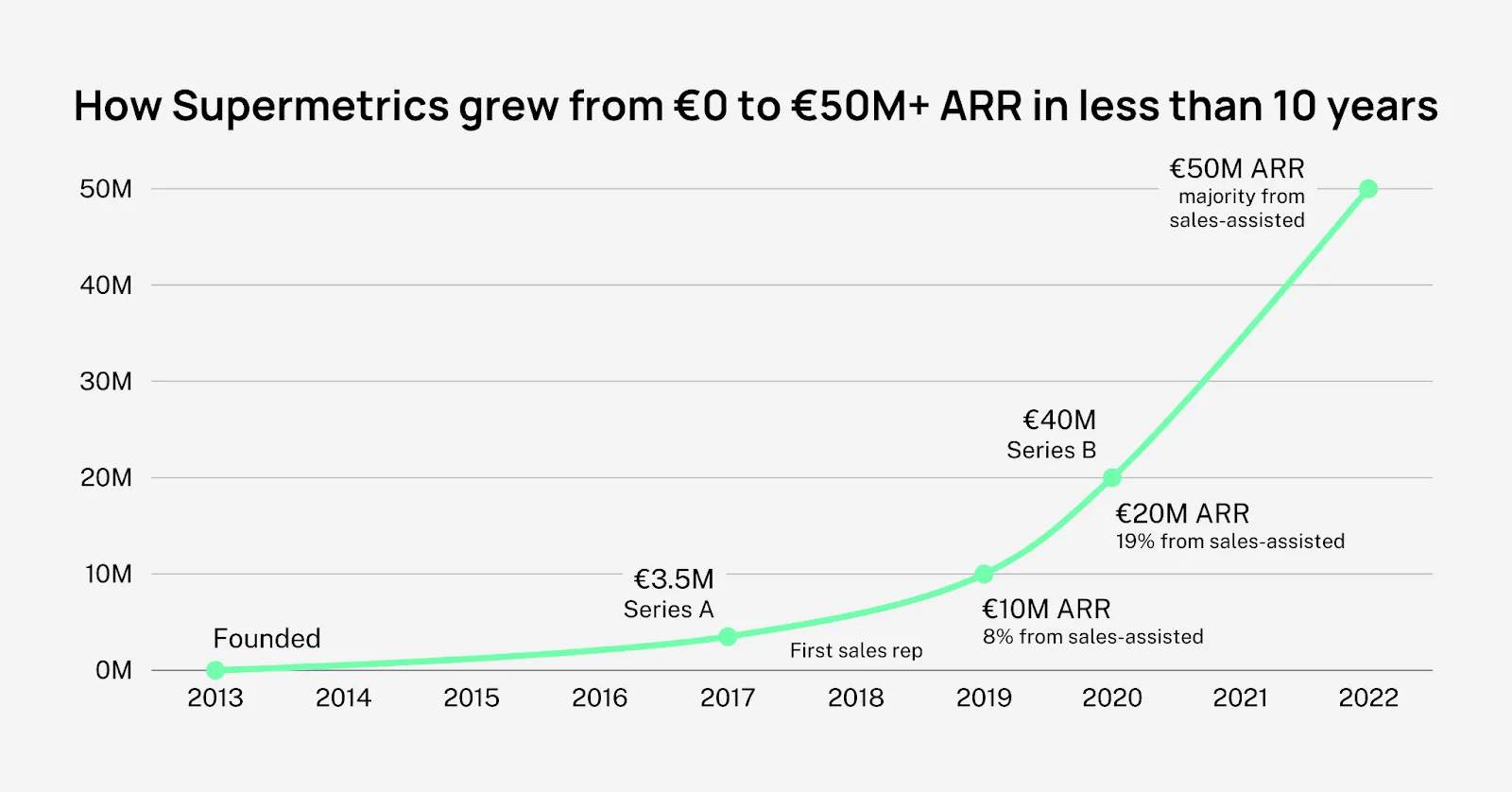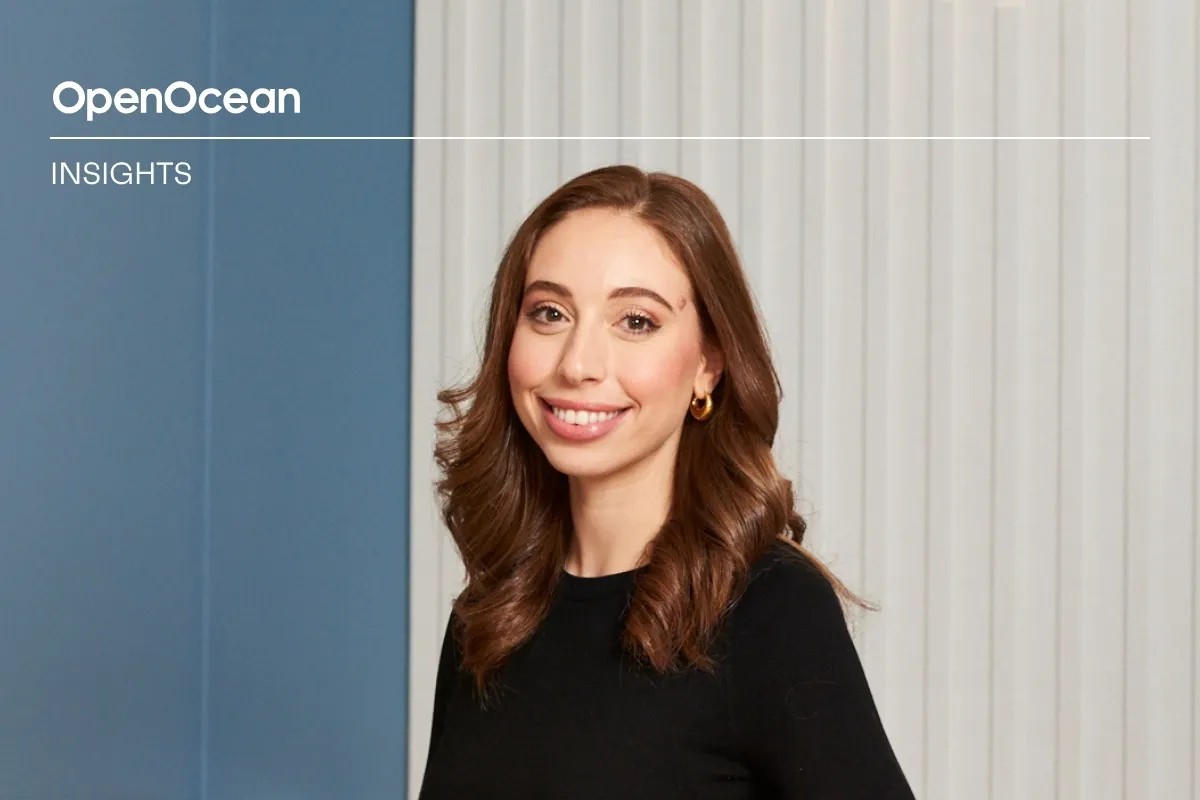
Mikael Thuneberg, CEO and Founder of Supermetrics
When I founded Supermetrics in 2010, I didn't have the skills to be a tech entrepreneur. I wasn’t a developer by background, and I didn't have the business skills either. I was missing all the ingredients I thought I needed. But as a data analyst, I did have a very good understanding of the problem. Of course, I had experienced it firsthand, and I had a very clear idea of how it should be solved for people like me.
Our product—a tool to automatically extract data from marketing platforms and import it into reporting and analytics tools—has proven successful with almost a million users. Supermetrics has grown from a hobby project and scaled to a global business with over 50 million ARR while spending very little outside capital.
So how did we get here? Our beginnings were modest.
How I started Supermetrics
Supermetrics solves a problem that many marketers and analysts face—manually collecting scattered data. We help them automate the process and get access to the data they need for their work.
My initial aim was never to take over the globe with a piece of software. I just wanted to solve that annoying data transfer problem. By focusing solely on the problem at hand, every step I took was to better the product I was creating. By collaborating with our early clients and creating increasingly successful iterations of what would become Supermetrics, we built software especially fit for it’s purpose.
To begin with, I kept everything very streamlined because I wasn’t looking to build a big company. Not having the common startup ambition to become the fastest-growing company was very important in Supermetrics’ journey because my initial focus was solely on solving the problem. As I was running the company alone, everything had to be efficient, and so I focused on making the product and access to it frictionless.
Customer-first approach to product
We believed in distributing our product where users live. But we didn’t want potential users to have to scout us out. Instead, we worked on embedding Supermetrics in systems our clients already used. We began our focus on Excel and Google Sheets.
This led us to Google Data Studio, BigQuery, and other platforms. Our product’s expansion was quite organic. Through each new iteration, we stuck by our decision to build everything inside the platforms our clients use.
There were three big benefits to this approach. First, for our users, the problem we were solving was the increase of marketing technology tools. It felt contradictory to add one more. Instead, we helped our clients pull data into tools they were already familiar with rather than creating yet another platform their teams had to master.
Secondly, marketing our product as a Google Sheets add-on or Google Data Studio connector, for instance, meant we could generate leads very easily since those platforms already had millions of users.
Finally, when we integrated with known products from big companies like Google or Microsoft, we could co-market and co-sell with them. Our product became a complementary offering to theirs rather than a competitor.

Building a product that sold itself
As a bootstrapped company headquartered in a small market, I wanted to nail self-service first. This ensured that with an extremely lean team, the product would sell itself to customers regardless of time zone and with a hyper-low acquisition cost.
One early design principle was a 14-day free trial rather than going freemium or fully free. We made it as easy as possible to get started, we still don't require credit card details or personal information, and there's no need to talk to our salespeople before gaining access to the product trial, unlike some competitors. This frictionless self-serve model remains a key feature of our product still today.
For our first eight years, we didn't have any salespeople. We made millions of euros in ARR before we started hiring salespeople or putting in place other traditional corporate structures. Because we kept things so lean for a long time, we enjoyed great profit margins growing well over 100% in revenue, year on year.
Adding sales-assisted to grow from €5M to €50M+
Supermetrics started with a humble mission of solving a real problem and developed into a profitable customer-first product at €5M ARR. From this very strong base, we decided to take the business to the next level by officially adding a sales team. We took this step because we wanted to scale and increase revenue, but we also wanted to address customers' problems and pain points, build longer-term relationships, and ensure we were also focusing on customer retention.
So in 2018, 8 years after beginning, we added our first sales rep at €5M ARR. From there, we scaled to €10M ARR with three sales reps contributing 8% of monthly revenue. One year later, we then reached €20M ARR with 20 sales reps who then contributed 19% of monthly revenue. In other words, while Supermetrics had a product that could sell itself, adding sales helped accelerate the company’s growth trajectory.
Having both a sales-assisted and a self-service sales funnel hasn’t been without its difficulties. Although all the interests in our company remain well-aligned, we now have a hybrid model that brings its own challenges. We’re constantly having discussions to ensure that both the self-service and sales-assisted models deliver the right kinds of value to our clients, and as a result our product needs to serve both needs.
Although troublesome initially, we’ve now grown into our hybrid product model. It’s proven a resounding success, exceeding our wildest expectations.

Focus on the product, and the rest will come
As I mentioned earlier, I didn't have the ambition to build a huge company, but I did have the ambition to build a great product. And that meant I really focused on this, every ounce of my energy in the early days was placed into the product. I ran the company alone for the first five years, which meant that I didn't have any other distractions.
So really perfecting that, working with our clients, getting their continuous feedback, and having that laser product focus was great. Because eventually, that got the motion going where people loved Supermetrics, they talked about it, and it just spread fast organically. So, although my early approach in creating Supermetrics may be argued as too modest and unorthodox in today’s startup, scale fast approach. For Supermetrics, this product-led growth approach worked well as the scale came after we solved a real global problem and proved profitability. If you have a strong product that solves a real problem and truly love what you do, then focus on perfecting the important things to you, and the rest will come.


